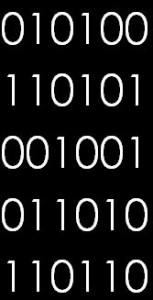We are going to need some novel words in English to express the empty feeling of seeing our careful efforts depart for wherever pixels go to die.
Slate writer Julie Lee recently wrote a piece with the useful but troubling reminder that, in her words, “our digital lives are too fragile.” Like all of us, she has noticed that digital platforms are slippery. They constantly change and expect that we will adapt. Lee arrived at this conclusion after a free-access internet site that she used to save her work suddenly put up a full paywall. That meant that she would need to pay to have her pieces held in Evernote’s archive. Lee saw the implications, wondering if it was within her rights to retrieve her work using the site’s prior terms.
On a more prosaic level, I set up a new mobile phone several months ago, only to have it malfunction recently, requiring the service provider to force a complete restart, wiping it clean of all the apps, contacts, and settings I had arranged. These experiences are not unlike discovering that a frequently used organization has suddenly experienced a kind of brain freeze, with the surprising result that they can find no record of any prior contact. If log-ons fail, a person’s account may go into a limbo made worse because organizations typically reject any effort to set up a new account because “someone else” has your name. If we needed reminders—and we don’t—the capricious digital world can change the terms of service at any time.
We have extended ourselves into this electronic ether perhaps forgetting that organizations eventually want to monetize our use of them. The idea of paying for media access is hardly new. Our grandparents duly paid to receive a morning paper or the most recent issue of Time Magazine. But our implicit contract with a given platform is usually less stable. Platforms in the informational world often start with the tempting bait of free access, usually in exchange for exposure to a modest number of advertisements. But these same sources can easily devolve into a “pay to play” policy, as Lee found out. Even the vital news source of the Associated Press is now asking for donations to support their website, which remains pleasantly packed with accessible content. Will that change in the future if they move stories behind their own paywall?

Lee’s concerns extend further to creative work that we release into the world in outlets curated by others, and subject to terms of service that may include the withdrawal of access to material that we thought was ours. As digital journalists who have seen their companies vanish can tell us, nothing that enters our world using pixels is necessarily permanent. As I have noted in earlier essays, Apple software usually does not give users or other tech companies anything close to full access.
If the idea was not already with us, we would have had to invent the concept of a library that can function as a long-term repository for ideas and images. There is some comfort in knowing that a hardcopy book launched into the world will have a small chance at permanence on a bookshelf. Libraries eagerly purging their paper documents should think again.
Everybody is Now I.T. Person. And Most of Us Aren’t Very Good at it.
Those of us who live extensively in the digital realm can be impressively productive. But it is also the case that the amount of time we must take to simply maintain access can be excessive. My gloomy effort at phone recovery took a half day, not unlike the previous day’s similarly futile effort to convince Adobe that I should be able to make a minor change on a homegrown PDF file. It turns out that I needed to pay more for that basic editing privilege.
Notwithstanding the library model, perhaps we are evolving to a new norm of cultural impermanence, where most current content or personal data will be lost or unavailable. A.I. probably makes this shift more likely, where only the ill-fitting skeletons of borrowed tropes will be thrown into “new” messages to live another day.
Even so, we are going to need some new and novel words to express the empty feeling of seeing our careful efforts depart for wherever pixels go to die. For my part, in this new year I vow to not allow the digital demons to devour hours that could be used more productively.
![]()

